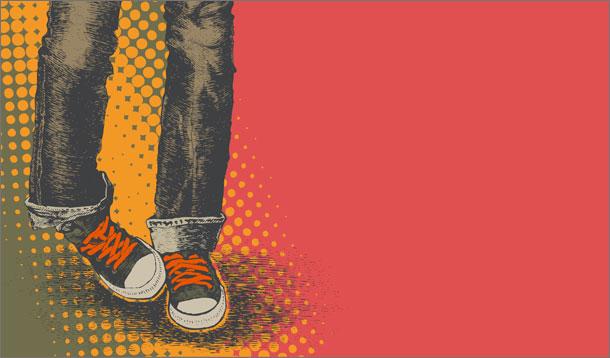
Yummy Mummy Lori from Orangeville says:

I have a 16 year old who is out of control...what can i do to reach him before he spirals beyond reach?
 There are many different reasons why a 16-year old boy could be “out of control.” First of all, in general, teen-aged boys can be pretty horrible to their mothers. This is because they need to push their mothers away in order to become separate, autonomous individuals.
There are many different reasons why a 16-year old boy could be “out of control.” First of all, in general, teen-aged boys can be pretty horrible to their mothers. This is because they need to push their mothers away in order to become separate, autonomous individuals.
They must (at least temporarily) disconnect the strong maternal-child bond so that they can begin to bond with their peers. Although unpleasant, it's a normal, healthy and temporary part of teen male development. They're not doing it consciously, so talking to them about it won't work. It's a matter of riding it out.
On the other hand, bad behaviour might be how a 16-year old boy shows that he's in trouble. Teens are typically not great at articulating to their parents what's wrong, so it's up to Mom and Dad to seek out the clues as to whether their son is struggling with substance abuse, academic problems, psychological issues or peer pressure.
One common reason for a teen-ager being out of control is a lack of respect for their parent(s). Some parents take a somewhat lenient approach with their children, trying to be more of a friend than an authority figure.
This often back-fires, as the absence of clear rules, boundaries and (reasonable) consequences makes a child feel insecure. They're confused about what's expected of them, and this causes them to become insolent and insubordinate.
In such cases, firm but loving discipline will give the young person a much-needed sense of security. They might initially balk at the change - teens are creatures of habit - but when they know their limits and are clear about the consequences of their choices, they begin to feel safer, which leads to increased respect for their parents and improved behaviour.
In the case of a bad crowd, bullying or an abusive teacher, sometimes the best solution is to remove the child from the situation. Putting them into a new, positive environment can make a big difference for a young person. Again, they might initially resist the change, but they'll most likely thrive in their new surroundings.
When a young person is abusing alcohol or drugs, it could be due to being around people who set bad examples, but it might also be an attempt on their part to self-medicate anxiety, depression or ADHD. Helping a teen with substance issues requires understanding that there can be different reasons why they might have this problem.
Sometimes counseling or therapy is the right option for a troubled teen. Adolescence is a time of great transition and therefore confusion, and not every teen gets through it unscathed. There are various different counseling services available for teens in crisis, depending on your community.
If your child has a undiagnosed learning disorder, they're likely to feel different and suffer from low self-esteem. Untreated ADHD or dyslexia can cause a lot of frustration, resulting in an angry teen.
Tutoring or special classes (and sometimes medication) will solve both the academic and emotional issues associated with learning difficulties.
Occasionally, a teen-ager can have the beginnings of a mood disorder or even mental illness. As I mentioned above, it's not uncommon for depression or anxiety to first appear during the teen years. Less commonly, Bipolar Disorder, OCD and even psychotic disorders can show up in adolescence.
All of these conditions require medical treatment. If your family doctor isn't equipped to deal with the problem, you'll need to consult a social worker, psychologist or psychiatrist.
As a rule, sullen, unresponsive teen-aged boys aren't terribly interested in talking to their parents. They usually experience parental attempts at communication as harassment. Often, it's a better idea to get someone else to speak to your son, but it shouldn't seem like you set it up.
This person could be a cousin, a teacher, a coach or a family friend. They should be young and hip enough so that your son can relate to them, (being cool is of paramount importance at this stage of life) but mature and intelligent enough so that they could steer him in the right direction.
These are some thoughts about 16 year-old boys in crisis. Hopefully, the above will be helpful to you and you'll be able to resolve your situation very soon.